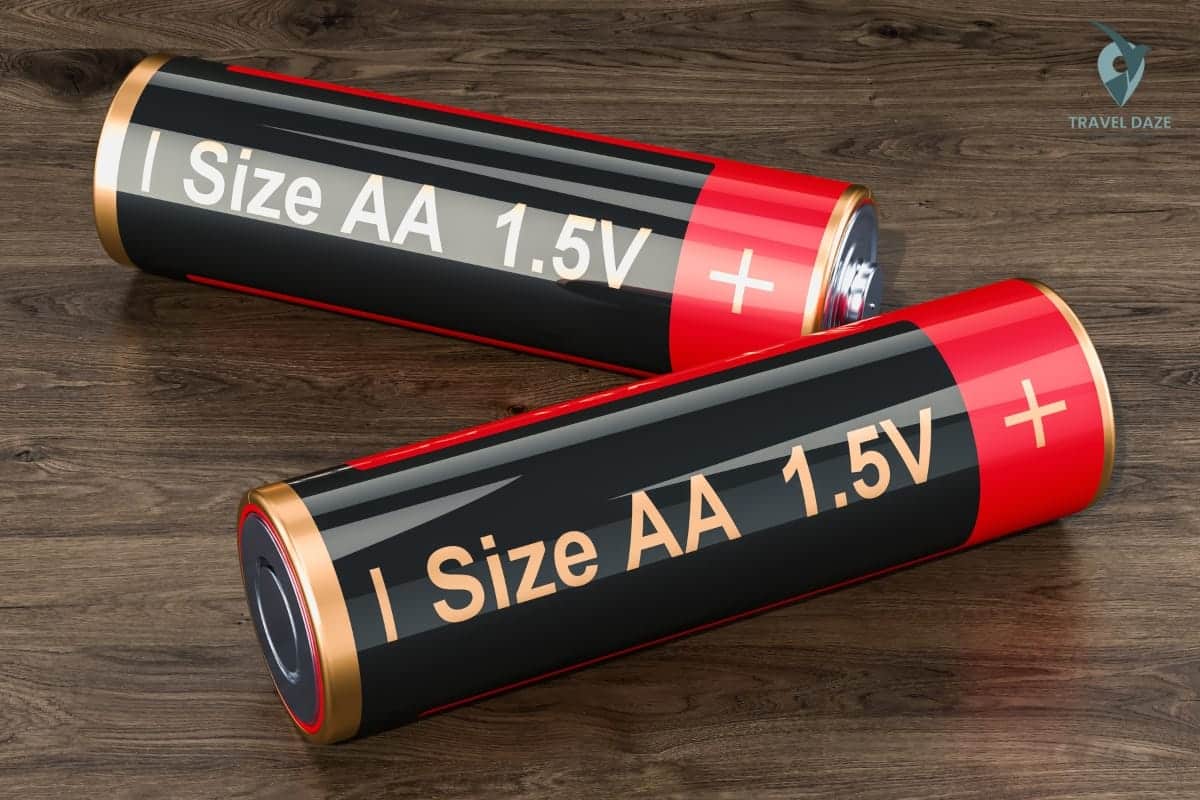In 2023, the TSA took more than 10,000 lithium-ion batteries from travelers. These batteries are common in our daily gadgets, but they must comply with certain air travel rules. When carrying these batteries on planes, knowing the TSA regulations for 2025 is critical.
Table of Contents
ToggleWe will go over what you need to know in order for your devices to pass security. You’ll learn the reasons behind these rules and how to pack your batteries right. This guide aims to make you ready to handle TSA’s changing requirements.
Understanding TSA Regulations for Lithium Ion Batteries
Lithium-ion batteries power our daily gadgets, but we face strict TSA rules on planes. They’re compact and powerful but can be hazardous, especially in the air. This is why there are strict rules.
Why Lithium-ion Batteries Are Restricted
The fire risk is the primary reason for TSA’s strict rules. If they overheat, they can catch fire, which is dangerous during flights. Proper handling reduces these risks.
Different Types of Batteries and Their Regulations
It’s important to know the regulations for different battery types when you travel. Whether you have a rechargeable battery for a camera or non-rechargeable ones, each has specific TSA rules. Being aware makes airport checks smoother.
| Battery Type | TSA Regulation |
|---|---|
| Rechargeable Lithium Ion | Carry-on luggage allows batteries, but the maximum capacity per battery is 100 watt-hours. |
| Non-Rechargeable Lithium | There is a limit of 2 grams of lithium per battery for carry-on luggage. |
| Alkaline, Nickel-Metal Hydride (NiMH) | You can bring both carry-on and checked luggage. |
These rules ensure flights are safe without hindering our need for gadgets. By following TSA guidelines, travel becomes safer for everyone. Next time, remember these rules for a smooth journey.
How to pack batteries in your carry-on and checked luggage
Traveling with batteries can be tricky due to TSA guidelines. Knowing how to pack them is crucial for a smooth air travel experience. This guide will show you the essentials.
Carrying Batteries in a Carry-On Bag
Always keep your batteries in a spot that’s easy to reach in your carry-on. TSA may need to check them. To avoid short circuits, keep them in their original packaging or in a protective case. Also, put them in different spots in your bag to stay safe.
Packing Batteries in Checked Luggage
Take extra steps when putting batteries in checked luggage. Cover each battery’s terminals with cases or cardboard. Lithium-ion batteries are a no-go in checked bags because they can overheat and cause fires. For other battery types, make sure they’re well protected and secure in your luggage.
Preventing Short Circuiting During Air Travel
It’s important to stop batteries from short-circuiting when flying. Always use cases or covers for your batteries. If you don’t have those, put tape over the contacts. This keeps them from touching metal, potentially causing trouble.
Another suggestion is to leave the batteries in their devices if possible. This is a beneficial way to prevent problems and keep your flight safe. Following these steps helps ensure that your batteries are safe during your trip. Whether in a carry-on or checked luggage, these tips can lower the risks when you’re flying.

TSA Lithium Battery Rules 2025
The TSA has updated its lithium battery rules for 2025. These changes improve safety for everyone flying. Let’s look at what these guidelines mean for you when you fly.
The rules about battery size have changed. Now, batteries up to 100Wh can be in both carry-on and checked bags. You don’t need special permission for these.
Batteries between 100Wh and 160Wh need the airline’s approval. If you’re bringing one, notify the airline. Bags cannot hold more than 160 Wh batteries.
| Battery Type | Watt-hour Rating | Permitted in Carry-On | Permitted in Checked Luggage |
|---|---|---|---|
| Lithium-ion battery | Up to 100Wh | Yes | Yes |
| Lithium-ion battery | 100W to 160Wh | Yes, with airline approval | Yes, with airline approval |
| Lithium-ion battery | Above 160Wh | No | No |
Now, there’s a new rule about loose batteries. You must keep them in protective cases or original packaging. This helps prevent short-circuits.
Before you travel next time, check these rules. Knowing and following the TSA guidelines will help you have a smooth trip.
Spare Batteries and How to Handle Them
Traveling often means packing spare batteries to keep devices working. It’s important to know the TSA battery rules for lithium batteries. This guide makes your travel easier. When preparing your international packing list essentials, make sure your spare lithium batteries are stored in your carry-on luggage, as the TSA prohibits them in checked baggage due to safety concerns. Batteries must also be properly protected from damage or short-circuiting, so use their original packaging or place tape over the terminals. Being aware of these regulations ensures a smoother security screening process and helps keep your travels stress-free.
Rules for Carrying Spare Lithium Batteries
According to TSA battery regulations, you can carry them in your carry-on luggage. But there are rules to follow:
- Spare lithium batteries cannot go in checked bags.
- You can bring two large lithium batteries (100-300 watt hours each).
- There’s no limit for standard batteries (under 100 watt hours).
Precautions to Take with Spare Batteries
Handling spare batteries safely means following certain steps. These include:
- Put each battery in a protective case to avoid short circuits.
- Tape over the battery terminals is a beneficial idea.
- Keep batteries away from metal objects.
- To comply with TSA battery regulations, only carry batteries in your carry-on luggage.
Conclusion
When you’re prepared, following TSA lithium battery rules is simple. Firstly, know the limitations on lithium-ion batteries to avoid airport surprises. Understanding the reasons and regulations for various battery types is crucial.
Packing batteries correctly in your bags prevents short circuits. You should follow TSA’s advice for both packed and spare batteries. Taking steps like taping terminals or using plastic bags keeps travel safe.
Always stay up to date with the latest TSA rules and lithium battery regulations for 2025. Being well prepared makes your travels smooth and worry-free. With these tips, you’re ready for your next trip!





